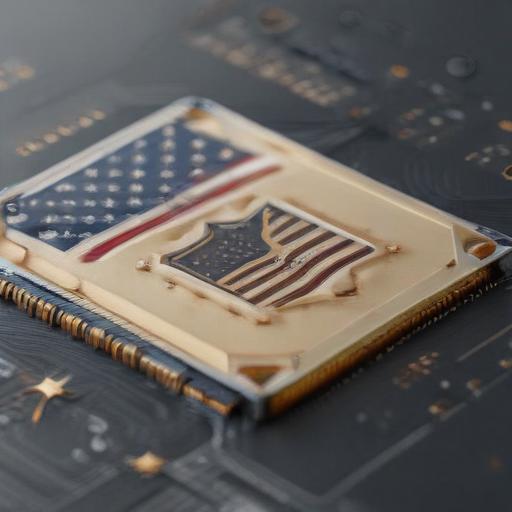The Trump administration is reportedly weighing an unprecedented move: the U.S. government would take a stake in Intel in a bid to shore up domestic chip manufacturing and revive the tech giant’s onshore leadership. After a meeting between President Trump and Intel CEO Lip-Bu Tan, Bloomberg reported that talks are underway about the government potentially funding a stake in the company, with the exact terms still to be worked out.
The proposal comes as Intel has struggled to keep pace with rivals after missing several key technology waves. A government investment could help Intel accelerate its efforts to expand U.S. manufacturing, including the planned new plant in Ohio that has faced repeated delays. Investors greeted the Bloomberg report, with Intel shares climbing more than 7% in late trading.
It remains unclear whether any deal will materialize or when it might be inked. If pursued, the arrangement could serve as a model for broader state-backed investments in critical sectors, a possibility being discussed inside the White House as officials weigh how to bolster domestic manufacturing and secure strategic technologies such as semiconductors and AI data centers. White House spokesperson Kush Desai cautioned that discussion about hypothetical deals should be treated as speculation unless officially announced.
Intel’s response was to emphasize its commitment to U.S. technology and manufacturing leadership while declining to comment on rumors. The company described the meeting with Trump as candid and constructive and noted its ongoing collaboration with the administration on shared priorities. Tan, who took the helm at Intel in March, has been pursuing a turnaround plan that includes workforce reductions, with the company recently signaling that it would complete a layoff of about 15% of staff as part of its restructuring efforts.
The discussions surrounding Intel fit into a broader pattern, in which the administration has signaled openness to unconventional partnerships with industry. For example, MP Materials, a U.S. rare-earths company, announced a multibillion-dollar package of investments and long-term commitments from the Department of Defense to build a new magnet manufacturing plant and expand existing facilities. Separately, chipmakers AMD and Nvidia reportedly agreed to pay the government 15% of their revenues from semiconductor sales to China in exchange for licenses to restart exports there, following talks with Nvidia’s CEO Jensen Huang.
What this could mean going forward is not yet settled. A government equity stake would raise questions about oversight, pricing, and risk, even as it could help secure critical supply chains and protect U.S. jobs in high-tech manufacturing. If anything, the conversations highlight a potential shift toward greater collaboration between the federal government and private industry to safeguard national strategic interests in technology.
What to watch next
– Whether the White House formally confirms any talks or a potential investment framework.
– How lawmakers might view or shape any proposed government stake, including eligibility criteria, safeguards, and sunset provisions.
– The impact on Intel’s strategy, capital allocation, and timeline for domestic manufacturing milestones, including the Ohio facility.
– Reactions from competitors, suppliers, and labor groups, and how similar approaches could unfold in other sectors deemed vital to national security and economic leadership.
Bottom line: The discussions point to a possible new era of government-private cooperation aimed at reinforcing U.S. leadership in semiconductors and related technologies, while balancing concerns about governance, market impact, and policy direction. A final decision remains uncertain, but the idea underscores a heightened focus on domestic resilience in critical tech industries.
